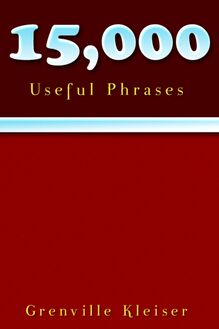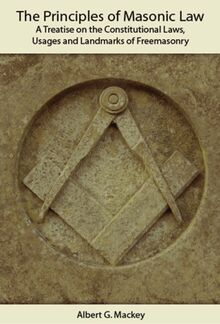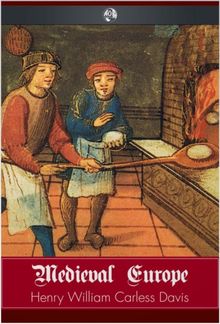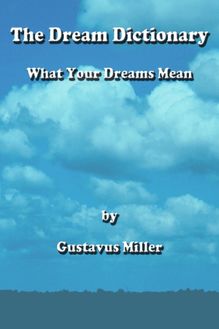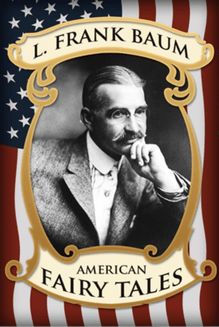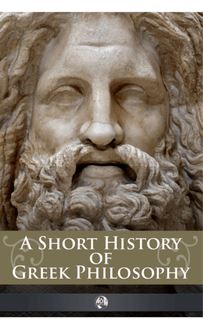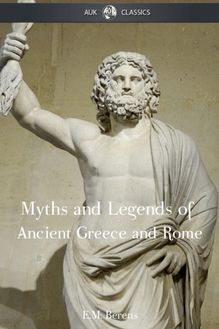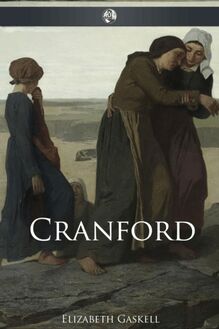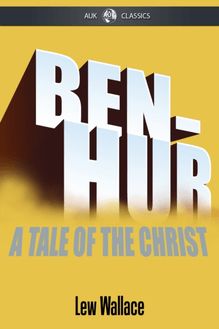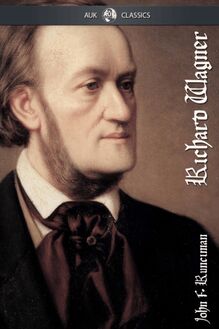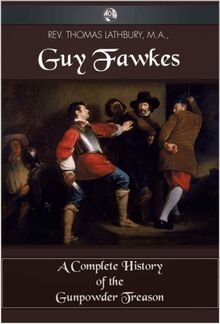-
 Univers
Univers
-
 Ebooks
Ebooks
-
 Livres audio
Livres audio
-
 Presse
Presse
-
 Podcasts
Podcasts
-
 BD
BD
-
 Documents
Documents
-
- Cours
- Révisions
- Ressources pédagogiques
- Sciences de l’éducation
- Manuels scolaires
- Langues
- Travaux de classe
- Annales de BEP
- Etudes supérieures
- Maternelle et primaire
- Fiches de lecture
- Orientation scolaire
- Méthodologie
- Corrigés de devoir
- Annales d’examens et concours
- Annales du bac
- Annales du brevet
- Rapports de stage
La lecture à portée de main
Vous pourrez modifier la taille du texte de cet ouvrage
Découvre YouScribe en t'inscrivant gratuitement
Je m'inscrisDécouvre YouScribe en t'inscrivant gratuitement
Je m'inscrisEn savoir plus
Vous pourrez modifier la taille du texte de cet ouvrage
En savoir plus

Description
Informations
| Publié par | Andrews UK |
| Date de parution | 18 septembre 2010 |
| Nombre de lectures | 0 |
| EAN13 | 9781849892209 |
| Langue | English |
Informations légales : prix de location à la page 0,0224€. Cette information est donnée uniquement à titre indicatif conformément à la législation en vigueur.
Extrait
Title Page
THE PRINCIPLES
OF
MASONIC LAW
A Treatise on the Constitutional Laws, Usages And Landmarks of Freemasonry
By
Albert Mackey
Publisher Information
This electronic version published in 2010 by
Andrews UK Limited
www.andrewsuk.com
This edited version, including layout, typography, additions to text, cover artwork and other unique factors is copyright Andrews UK 2010. No part of this digital publication may be reproduced, stored in a retrieval system or transmitted in any form or by any means electronic, mechanical, photocopying, recording or otherwise without written permission of the copyright owner.
Dedication
To
BROTHER J.J.J. GOURGAS, Sovereign Grand Inspector General in the Supreme Council for the Northern Jurisdiction of the United States. I Dedicate This Work, As a Slight Testimonial of My Friendship and Esteem for Him, As a Man, and of My Profound Veneration for His Character as a Mason; Whose Long and Useful Life Has Been Well Spent in the Laborious Prosecution of the Science, And the Unremitting Conservation of the Principles of Our Sublime Institution.
Preface
In presenting to the fraternity a work on the Principles of Masonic Law, it is due to those for whom it is intended, that something should be said of the design with which it has been written, and of the plan on which it has been composed. It is not pretended to present to the craft an encyclopedia of jurisprudence, in which every question that can possibly arise, in the transactions of a Lodge, is decided with an especial reference to its particular circumstances. Were the accomplishment of such an herculean task possible, except after years of intense and unremitting labor, the unwieldy size of the book produced, and the heterogeneous nature of its contents, so far from inviting, would rather tend to distract attention, and the object of communicating a knowledge of the Principles of Masonic Law, would be lost in the tedious collation of precedents, arranged without scientific system, and enunciated without explanation.
When I first contemplated the composition of a work on this subject, a distinguished friend and Brother, whose opinion I much respect, and with whose advice I am always anxious to comply, unless for the most satisfactory reasons, suggested the expediency of collecting the decisions of all Grand Masters, Grand Lodges, and other masonic authorities upon every subject of Masonic Law, and of presenting them, without commentary, to the fraternity.
But a brief examination of this method, led me to perceive that I would be thus constructing simply a digest of decrees, many of which would probably be the results of inexperience, of prejudice, or of erroneous views of the masonic system, and from which the authors themselves have, in repeated instances, subsequently receded - for Grand Masters and Grand Lodges, although entitled to great respect, are not infallible - and I could not, conscientiously, have consented to assist, without any qualifying remark, in the extension and perpetuation of edicts and opinions, which, however high the authority from which they emanated, I did not believe to be in accordance with the principles of Masonic jurisprudence.
Another inconvenience which would have attended the adoption of such a method is, that the decisions of different Grand Lodges and Grand Masters are sometimes entirely contradictory on the same points of Masonic Law. The decree of one jurisdiction, on any particular question, will often be found at variance with that of another, while a third will differ from both. The consultor of a work, embracing within its pages such distracting judgments, unexplained by commentary, would be in doubt as to which decision he should adopt, so that coming to the inspection with the desire of solving a legal question, he would be constrained to close the volume, in utter despair of extracting truth or information from so confused a mass of contradictions.
This plan I therefore at once abandoned. But knowing that the jurisprudence of Masonry is founded, like all legal science, on abstract principles, which govern and control its entire system, I deemed it to be a better course to present these principles to my readers in an elementary and methodical treatise, and to develop from them those necessary deductions which reason and common sense would justify.
Hence it is that I have presumed to call this work “The Principles of Masonic Law.” It is not a code of enactments, nor a collection of statutes, nor yet a digest of opinions; but simply an elementary treatise, intended to enable every one who consults it, with competent judgment, and ordinary intelligence, to trace for himself the bearings of the law upon any question which he seeks to investigate, and to form, for himself, a correct opinion upon the merits of any particular case.
Blackstone, whose method of teaching I have endeavored, although I confess “ab longo inter-vallo,” to pursue, in speaking of what an academical expounder of the law should do, says:
“He should consider his course as a general map of the law, marking out the shape of the country, its connections, and boundaries, its greater divisions, and principal cities; it is not his business to describe minutely the subordinate limits, or to fix the longitude and latitude of every inconsiderable hamlet.”
Such has been the rule that has governed me in the compilation of this work. But in delineating this “general map” of the Masonic Law, I have sought, if I may continue the metaphor, so to define boundaries, and to describe countries, as to give the inspector no difficulty in “locating” (to use an Americanism) any subordinate point. I have treated, it is true, of principles, but I have not altogether lost sight of cases.
There are certain fundamental laws of the Institution, concerning which there never has been any dispute, and which have come down to us with all the sanctions of antiquity, and universal acceptation. In announcing these, I have not always thought it necessary to defend their justice, or to assign a reason for their enactment.
The weight of unanimous authority has, in these instances, been deemed sufficient to entitle them to respect, and to obedience.
But on all other questions, where authority is divided, or where doubts of the correctness of my decision might arise, I have endeavored, by a course of argument as satisfactory as I could command, to assign a reason for my opinions, and to defend and enforce my views, by a reference to the general principles of jurisprudence, and the peculiar character of the masonic system. I ask, and should receive no deference to my own unsupported theories - as a man, I am, of course, fallible - and may often have decided erroneously. But I do claim for my arguments all the weight and influence of which they may be deemed worthy, after an attentive and unprejudiced examination. To those who may at first be ready - because I do not agree with all their preconceived opinions - to doubt or deny my conclusions, I would say, in the language of Themistocles, “Strike, but hear me.”
Whatever may be the verdict passed upon my labors by my Brethren, I trust that some clemency will be extended to the errors into which I may have fallen, for the sake of the object which I have had in view: that, namely, of presenting to the Craft an elementary work, that might enable every Mason to know his rights, and to learn his duties.
The intention was, undoubtedly, a good one. How it has been executed, it is not for me, but for the masonic public to determine.
Albert G. Mackey.
Charleston, S.C., January 1st., 1856.
Introduction
The Authorities for Masonic Law
The laws which govern the institution of Freemasonry are of two kinds, unwritten and written, and may in a manner be compared with the “lex non scripta,” or common law, and the “lex seripta,” or statute law of English and American jurists.
The “lex non scripta,” or unwritten law of Freemasonry is derived from the traditions, usages and customs of the fraternity as they have existed from the remotest antiquity, and as they are universally admitted by the general consent of the members of the Order. In fact, we may apply to these unwritten laws of Masonry the definition given by Blackstone of the “leges non scriptæ” of the English constitution - that “their original institution and authority are not set down in writing, as acts of parliament are, but they receive their binding power, and the force of laws, by long and immemorial usage and by their universal reception throughout the kingdom.” When, in the course of this work, I refer to these unwritten laws as authority upon any point, I shall do so under the appropriate designation of “ancient usage.”
The “lex scripta,” or written law of Masonry, is derived from a variety of sources, and was framed at different periods. The following documents I deem of sufficient authority to substantiate any principle, or to determine any disputed question in masonic law.
1. The “Ancient Masonic charges, from a manuscript of the Lodge of Antiquity,” and said to have been written in the reign of James II.
2. The regulations adopted at the General Assembly held in 1663, of which the Earl of St. Albans was Grand Master.
3. The interrogatories propounded to the Master of a lodge at the time of his installation, and which, from their universal adoption, without alteration, by the whole fraternity, are undoubtedly to be considered as a part of the fundamental law of Masonry.
4. “The Charges of a Freemason, extracted from the Ancient Records of Lodges beyond sea, and of those in England, Scotland, and Ireland, for the use of the Lodges in London,” printed in the first edition of the Book of Con
-
 Univers
Univers
-
 Ebooks
Ebooks
-
 Livres audio
Livres audio
-
 Presse
Presse
-
 Podcasts
Podcasts
-
 BD
BD
-
 Documents
Documents
-
Jeunesse
-
Littérature
-
Ressources professionnelles
-
Santé et bien-être
-
Savoirs
-
Education
-
Loisirs et hobbies
-
Art, musique et cinéma
-
Actualité et débat de société
-
Jeunesse
-
Littérature
-
Ressources professionnelles
-
Santé et bien-être
-
Savoirs
-
Education
-
Loisirs et hobbies
-
Art, musique et cinéma
-
Actualité et débat de société
-
Actualités
-
Lifestyle
-
Presse jeunesse
-
Presse professionnelle
-
Pratique
-
Presse sportive
-
Presse internationale
-
Culture & Médias
-
Action et Aventures
-
Science-fiction et Fantasy
-
Société
-
Jeunesse
-
Littérature
-
Ressources professionnelles
-
Santé et bien-être
-
Savoirs
-
Education
-
Loisirs et hobbies
-
Art, musique et cinéma
-
Actualité et débat de société
- Cours
- Révisions
- Ressources pédagogiques
- Sciences de l’éducation
- Manuels scolaires
- Langues
- Travaux de classe
- Annales de BEP
- Etudes supérieures
- Maternelle et primaire
- Fiches de lecture
- Orientation scolaire
- Méthodologie
- Corrigés de devoir
- Annales d’examens et concours
- Annales du bac
- Annales du brevet
- Rapports de stage
